The Ultimate White Pearls FAQ: Everything You Need to Know

Are white pearls rare?
High-quality white pearls are rare gemstones admired for their elegant lustre and timeless appeal.
Their scarcity arises from the intricate process of formation.
Cultured pearls, grown in oysters through human intervention, involve careful nurturing over the years.
Size, shape, surface quality, and iridescence contribute to their rarity.
Prized for their beauty, these pearls remain a symbol of sophistication and grace, reflecting the meticulous craftsmanship required to cultivate their natural allure.
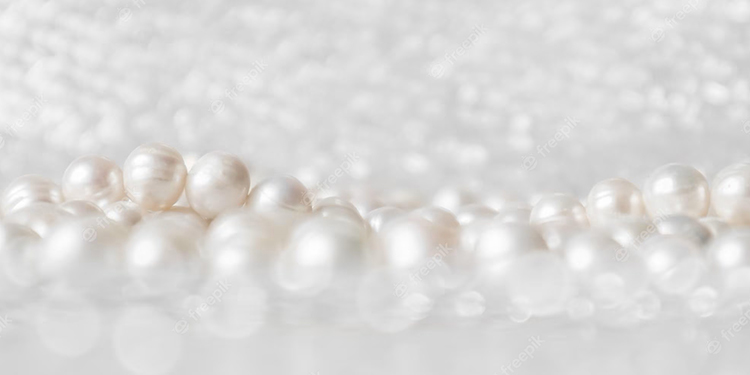
Can white pearls be worn every day?
Indeed, white pearls are a timeless and elegant choice suitable for daily wear.
Opt for understated designs like stud earrings or a simple pendant necklace to incorporate them seamlessly into your everyday look.
Consider the occasion and outfit – smaller pearls for work, slightly larger for social events. Regular gentle cleaning will maintain their lustre.
Remember, white pearls effortlessly add sophistication to any ensemble.
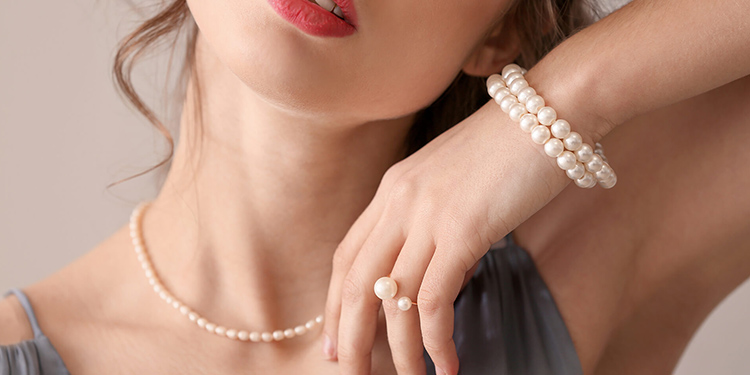
How can I tell if a white pearl is natural?
Several methods can be employed to discern the authenticity of a white pearl.
Examine the pearl's surface for imperfections; genuine pearls often have minor blemishes, whereas fakes may appear too smooth.
Gently rubbing the pearl against your teeth can provide insight; genuine pearls are slightly gritty, whereas counterfeits tend to be smoother.
Lastly, seeking a professional evaluation from a reputable jeweller is a reliable way to ascertain the pearl's authenticity.
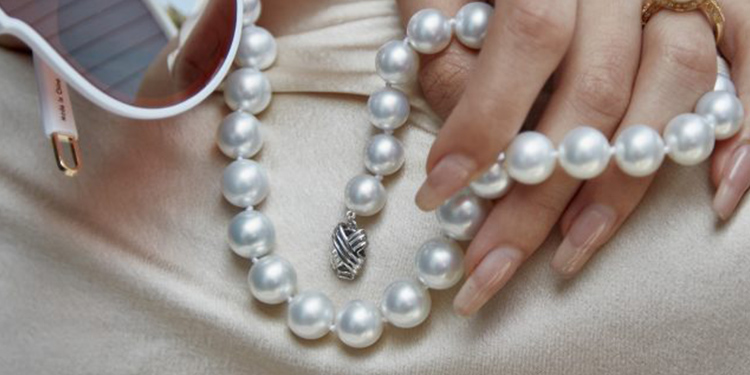
What makes white pearls different from other pearl colors?
White pearls are distinct due to their classic elegance and neutral hue, making them highly sought after.
Unlike colored pearls, such as black or pink, which derive their shades from natural or cultivated processes, white pearls have a timeless appeal that complements various jewellery styles and skin tones.
Their understated beauty, reflective properties, and versatile nature set them apart, ensuring they remain a perennial favourite in the world of pearls and adornment.
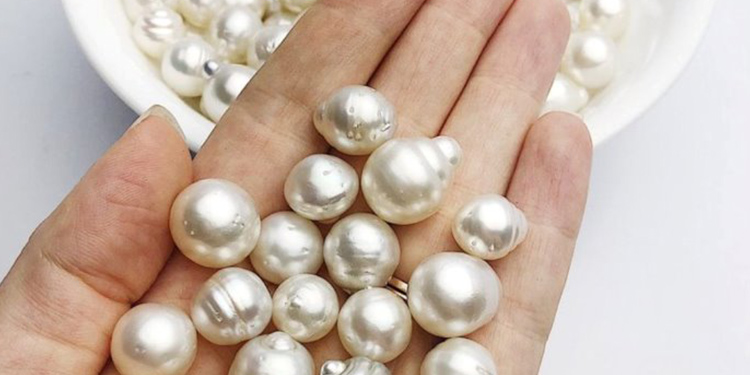
Do white pearls have any cultural significance?
White pearls have held cultural significance for centuries.
In various societies, they symbolise purity, wisdom, and spiritual enlightenment.
In Ancient Rome, pearls represented wealth and social status. In Eastern cultures, like Japan and China, they embody elegance and beauty.
White pearls are often associated with bridal jewellery, signifying innocence and new beginnings.
These lustrous gems have maintained their allure throughout history, reflecting diverse cultural values and aesthetics.
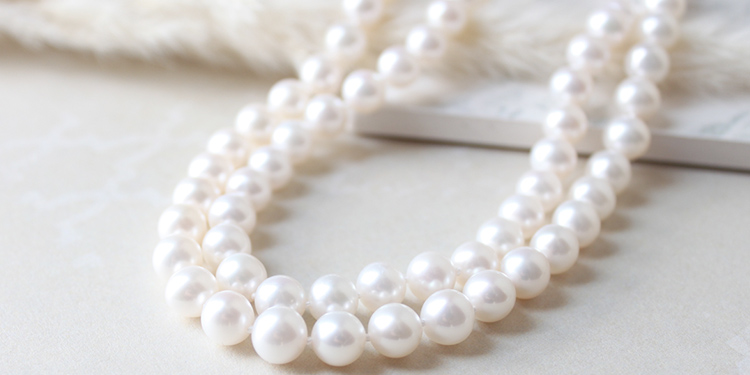
What is the average size of a white pearl?
The average size of a white pearl typically ranges between 7 to 8 millimetres in diameter.
However, larger pearls measuring 9 to 10 millimetres are also commonly found.
It's important to note that pearls may vary in size due to factors like the type of oyster or mollusc that produced them and the environmental conditions in which they formed.
This diversity in size contributes to the unique beauty and appeal of white pearls in various jewellery pieces.
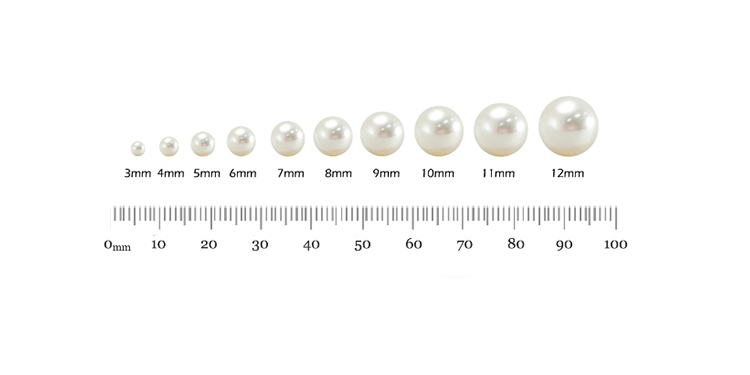
How should I store and clean my white pearl jewellery?
Store your white pearl jewellery's lustre away from direct sunlight and heat, which can cause discolouration.
Place pearls in a soft pouch or separate compartments to prevent scratching.
Clean them gently with a damp, soft cloth to remove oils and dirt after wearing them.
Avoid using harsh chemicals or ultrasonic cleaners.
Periodically restring pearls to prevent strand breakage.
Following these steps will ensure the enduring beauty of your white pearl pieces.
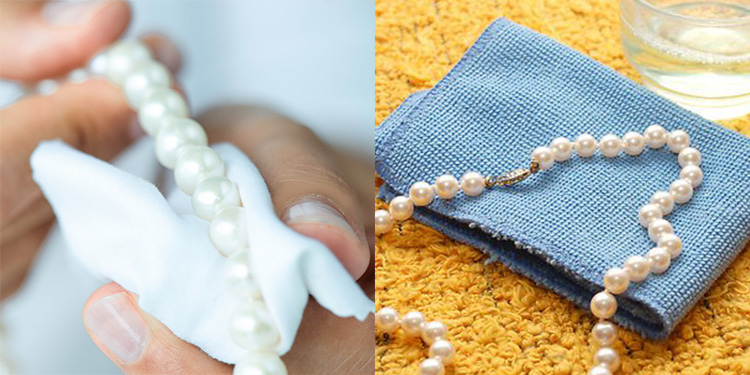
Are white pearls suitable for men's jewellery?
White pearls are suitable for men's jewellery, showcasing their versatility in accessories.
Their elegant lustre and timeless appeal can add a sophisticated touch to a man's ensemble.
From cufflinks to tie pins bracelets to minimalist necklaces, white pearls offer a refined and classic option for men who appreciate tasteful adornments.
Their subdued yet stylish appearance complements formal and casual outfits, making them versatile for men's accessories.
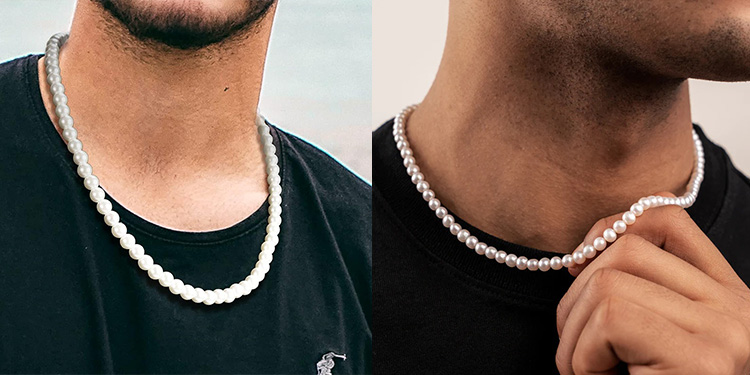
What is the future of pearl farming and jewellery?
The future of pearl farming and jewellery appears promising, with innovative techniques likely to refine pearl quality and yield.
Advancements in sustainable farming methods could alleviate environmental concerns.
Moreover, technology may enable precise sorting and grading, enhancing market value.
Consumer interest in unique, ethically sourced gems might increase demand for pearls.
As trends evolve, a fusion of traditional elegance with modern designs could keep pearls relevant and captivating in the jewellery industry.

Are white pearls considered sustainable and ethical?
White pearls are commonly sourced from oysters, which present mixed sustainability and ethical implications.
Ecologically, pearl farming can stress coastal ecosystems due to habitat alteration and chemical use.
Ethically, concerns arise over fair labour practices and the treatment of workers.
However, some producers adopt sustainable farming methods and adhere to ethical standards, mitigating these issues.
To ensure ethical and sustainable white pearls, consumers should seek certifications like Fair Trade or those promoting eco-friendly practices in pearl cultivation.
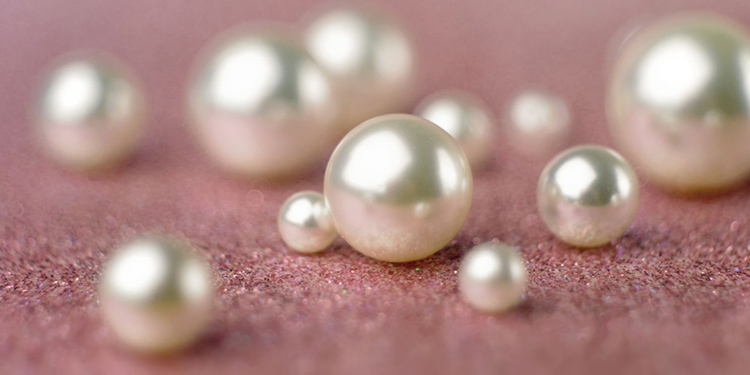


Leave a Comment